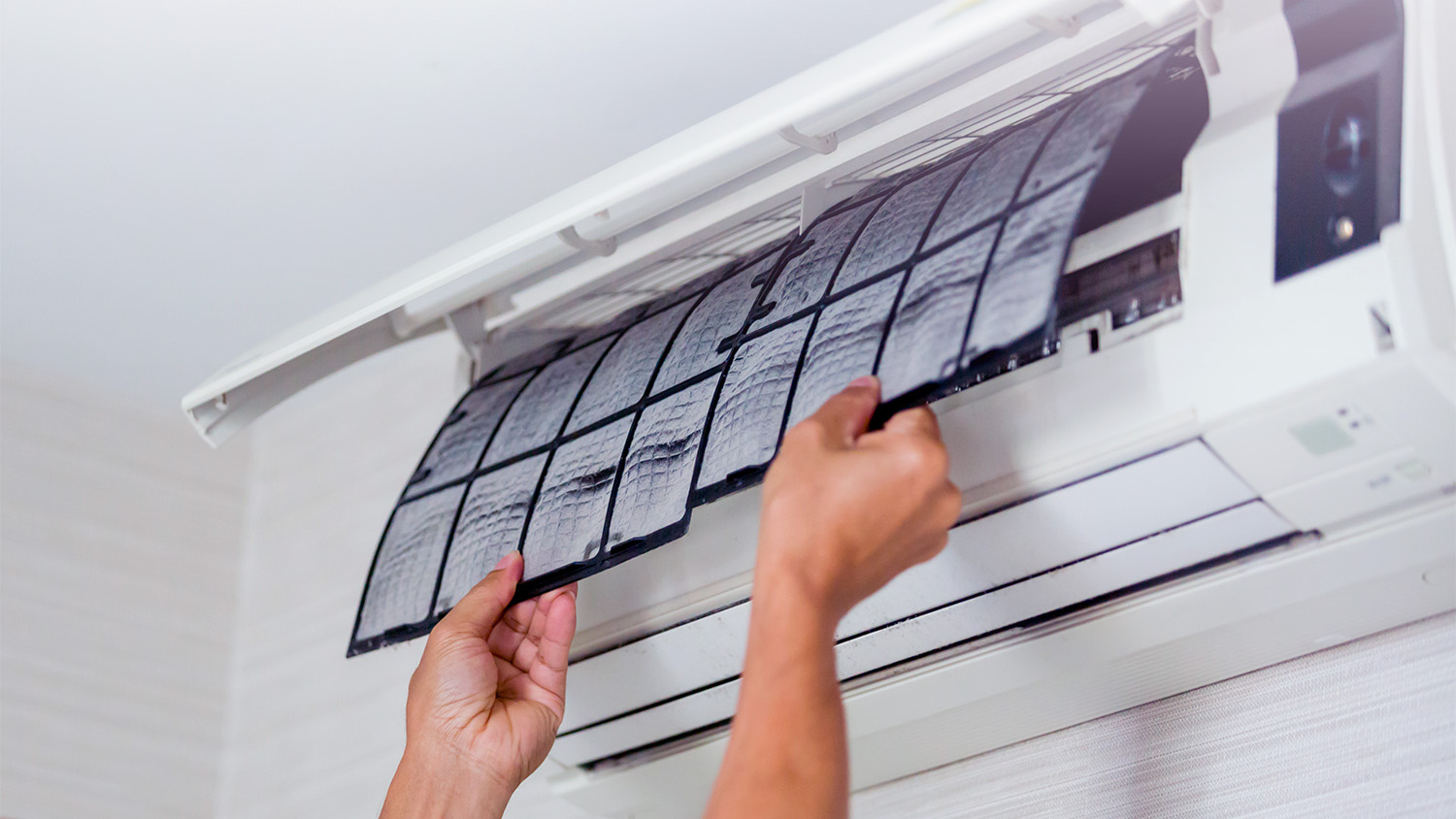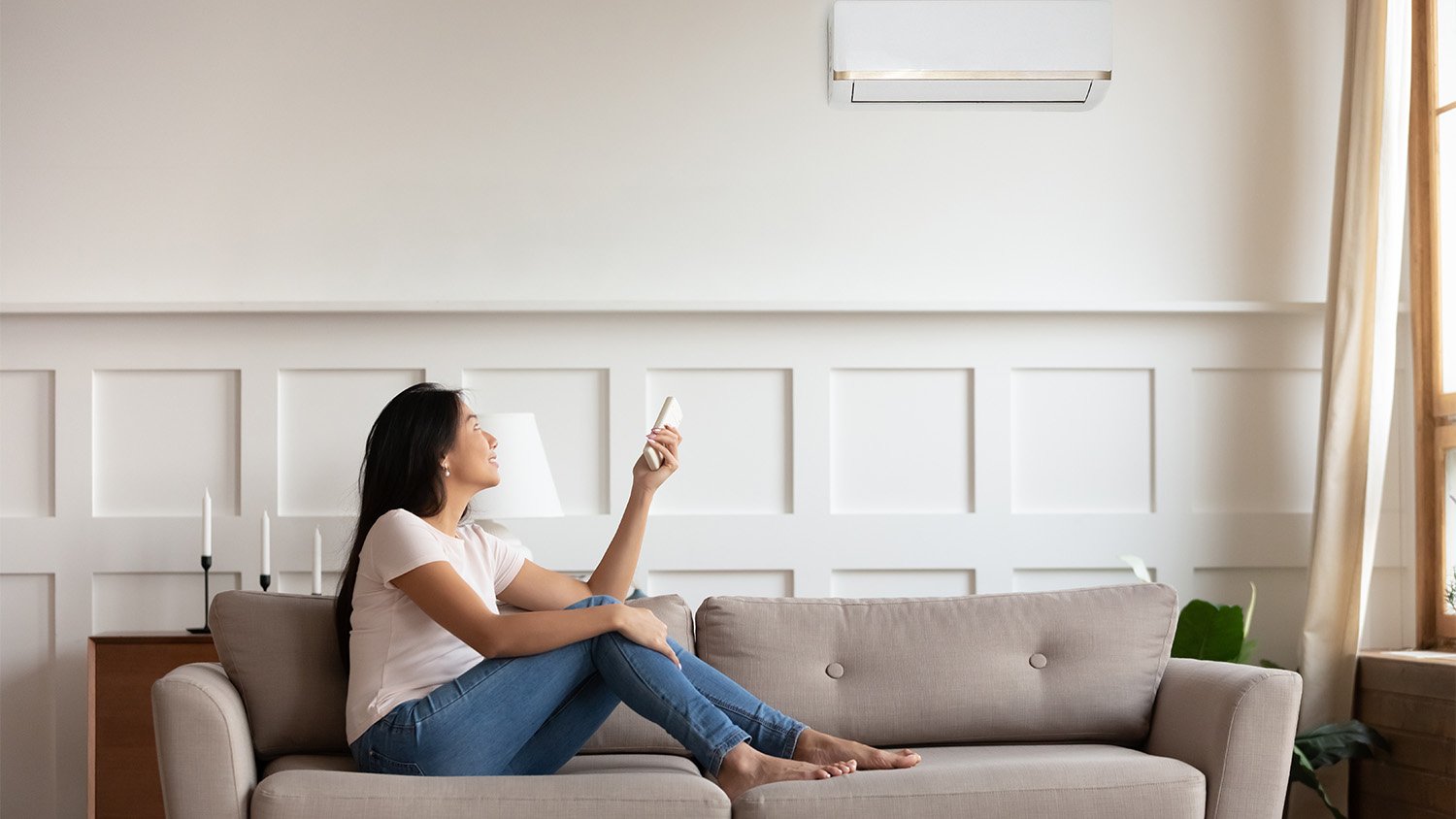
A worn AC fan motor can cause your system to overheat. Budget for AC unit fan motor costs, including parts and labor, with this guide.
You won’t feel too hot if your AC overheats


AC units can overheat due to lack of regular maintenance, dirty coils, and low refrigerant levels.
Hire an HVAC pro to fix refrigerant leaks and for annual maintenance.
You should replace your AC air filters every 90 days to avoid overheating.
Unfortunately, air conditioning overheating is one of several common HVAC problems. While quite common, it’s important to resolve overheating issues quickly before they lead to more serious problems. Learn five reasons why your air conditioner might be overheating with some fixes either you or an AC repair pro can use.
As your system ages, it will become worn down and less efficient. This aging process means the system has to work harder, producing more heat. Lack of regular HVAC maintenance can speed up the aging process of your system and cause overheating.
One of the best ways to prevent your system from overheating is to hire a local AC technician to conduct on your unit every six to 12 months. A standard maintenance appointment includes changing air filters, cleaning coils and ductwork, inspecting electrical components, and more.
You can also perform some maintenance on your own. Keep the area surrounding your condenser unit free of dirt and debris. Remove any leaves, twigs, and grass clippings to prevent overheating and clogging. You can also use a condenser-coil cleaning solution to keep the outside AC unit clean.

Keeping your AC from overheating comes down to ensuring that your AC isn’t working overtime. When your filters get too dirty, the airflow to the entire system can become blocked.
Eventually, a dirty air filter will cause the air conditioner to overheat and trip the circuit breaker. Worst-case scenario: A dirty filter can cause the air conditioner to break down.
In addition to routine maintenance and servicing, you should clean and replace your air filters every 90 days or every three months for efficient functionality. Keep a supply of filters on hand or call your air conditioning service to learn whether you can use a washable filter.
For an extra layer of protection, you should routinely inspect your indoor and outdoor units to ensure that there isn’t any debris or indoor furnishings blocking your filters, vents, and registers. Anything that potentially disrupts airflow through the system will make it work harder and potentially lead to overheating.

Your home’s AC unit has a tough job, and on the hottest and most humid summer days, keeping your entire home at a refreshing 72 degrees can prove difficult for even the best and most well-maintained systems.
So, to prevent your system from overheating, give it a break whenever possible. Adjust your temperature settings by a few degrees and supplement with ceiling fans and energy-efficient blinds and drapery, which you can close on hot days to maximize the cooling effect of your AC unit and fans.
Your AC unit needs more than clean air filters and ducts to work efficiently without overheating. Refrigerant is particularly important for the performance of your AC system. An air conditioning unit can leak refrigerant, and not having enough or too much refrigerant will force your AC unit to run constantly, causing it to overheat. If your home is not cooling down quickly and your unit runs constantly, it may be low on refrigerant.
If you have a refrigerant leak, you should probably leave that repair to the professionals. Hire a local HVAC repair professional to confirm the leak and drain the current refrigerant, and then make the appropriate repairs.
In addition to ensuring that your system is primed with refrigerant, you’ll also need to check that all of your system’s moving parts are well-lubricated. In most cases, this step is done by a professional as a part of your annual HVAC inspection and servicing. If you have an older AC system, or you hear screeching or grinding sounds, that’s a warning sign that your system may need oiling.
Keeping your AC filters clean is only half the job, though. You also need to ensure your ductwork is clean and clear. But since your filters protect your home’s ductwork, you won’t have to worry about inspecting and clearing your ducts as often as you have to worry about the filters.
In fact, a ductwork inspection and cleaning is part of your annual HVAC servicing. The key is to ensure that your ducts are checked and cleaned at least once per year, and more often if you find that your system is having trouble keeping the house cool or it’s running all the time to maintain the desired temperature.
Dirty coils can also be another culprit for overheating. Coils play an important role in removing heat from the air inside your home and releasing it outside. When dirt accumulates on the coils, your AC has to work harder to generate cold air, resulting in overheating.
You can clean AC coils by using a soft brush and household detergent or commercial cleaner. Just make sure not to scratch or damage the fins, as this can damage the coils and negatively impact your unit.
From average costs to expert advice, get all the answers you need to get your job done.

A worn AC fan motor can cause your system to overheat. Budget for AC unit fan motor costs, including parts and labor, with this guide.

When your HVAC system is acting up, it could be the blower motor to blame. See how much blower motor replacement costs and what impacts the price here.

What you’ll pay in Columbus, OH, for furnace repairs depends on many factors. Here’s a breakdown of what can go wrong and the cost to fix those issues.

Explore the most common HVAC duct types, from flexible to sheet metal to fiberglass, and learn about their pros and cons.

With so many types of furnaces out there, how do you know which one is best for you? Explore our guide to the five main types and get your home warmed up.

Having dirty evaporator and condenser coils works your HVAC system harder than it needs to. Here’s how to clean your air conditioner coils like a pro.